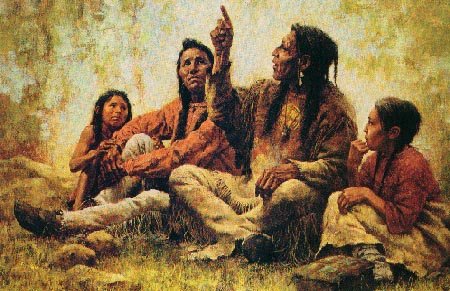
TOK REFERENCING: with very limited resources available for historians to utilize in making assumptions about the past, they must make sure to efficiently utilize even the insignificant sources of knowledge and wisdom. Oral traditions are very important but underestimated sources that would allow historians to at least partially accommodate the grey areas of the past. For this reason, it is highly relevant that we closely examine oral traditions that are vastly used by indigenous people. This aspect is explored in this blog page.
It is very common for the youngsters of the family to be exposed to the family’s tell tale stories and grandma’s famous bed time traditional stories. We haven’t realized it, but these are oral testimonies that have been passed on by our ancestors throughout generations before reaching us. However, when you sit through these stories, at least for me, I get extremely fascinated by these tell tales of how heroic my great-great-great-great grandparents used to be, but how far are they true? This led me to my knowledge question: How reliable are oral traditions in preserving knowledge in indigenous societies?
First we must understand few key terminologies before proceeding to explore 2 sides of this controversial question. Indigenous societies are made of people who are native to a particular region of land. Many indigenous people like the Australian tribes or the first Nations rely on oral testimonies and recounts to pass information from one generation to another. Oral traditions are verbally recounted traditions and beliefs mostly utilized by these indigenous people.
To investigate if oral traditions are reliable or not, it is only reasonable that we investigate whether the custom of oral testimony used to pass information from generation to generation is reliable or not.
On one side, researchers are uncovering evidence that would lead us to believe that oral testimonies and science are indeed converging, thus making them more reliable. One real life example is indigenous stories passed on by Australian tribes. These tribes have passed on stories about lost islands over 400 generations which actually coincides with under water findings in Australia! There are also some Australian tribes that can point out the locations of extinct islands and give their original names.
Another relevant RLS that can back this claim is accounts given by first nations. First nations are people who originally inhabited the land we now call Canada. About 175 years ago, population in the Coast Tsimshian declined by about 57% which coincides with colonization and spread of diseases at that time, which were clearly recounted by the first nation’s oral tradition.
This convergence in science and oral tradition increases the extent to which they are probably reliable.
On the other hand however, oral traditions are the result of traditions passed on from many generations before it reaches present day’s generation. It is definite that the stories and traditions have at least been slightly tailored according to the people from the specific generation. A relatable example is an oral tradition that has been passed on in my own family. Although my mom and her cousin branch out from the same family tree, they have different takes on the family tell tales. If there is a difference in oral tradition just from one generation to another, it is most likely that there will be a vast or at least minor transition as it is passed onto many generations.
In conclusion, oral traditions can be relied on to a certain extent, however due to a percentage uncertainty involved, it mustn’t be used as source of knowledge in isolation, but rather as a supporting source along with other sources.
Sources:
1. https://goprep.co/examine-the-strengths-and-limitations-of-oral-history-how-i-1nm48y
2. https://www.baylor.edu/content/services/document.php/66420.pdf
3. https://www.jstor.org/stable/40290448
4. https://ibsmartest.edublogs.org/files/2016/05/TOK-Presentation-Rubric-1hiy07f.pdf
5. https://community.dur.ac.uk/4schools.resources/History/Oral.htm
6. https://definitions.uslegal.com/o/oral-testimony/
7. https://toktopics.com/tag/history-and-iks/
8. https://www.cbc.ca/news/science/science-first-nations-oral-tradition-converging-1.3853799
9. https://kognity.com/resources/webinars/the-12-concepts-a-method-for-structuring-the-tok-course/
10. https://www.baylor.edu/content/services/document.php/66420.pdf
11. https://en.wikipedia.org/wiki/Indigenous_peoples
cover image source: https://steemit.com/science/@antropomitica/the-myth-part-i-what-is-oral-tradition
Comments
Post a Comment